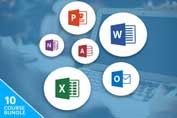Learn how to securely & basically manage your digital life's ever growing list of passwords & beat the cyber criminals.
Let's face it - life on the Net means usernames & passwords (accounts)! Lots of them in fact!
Cease & give it some thought for a moment. How lots of sites do you login in to every day, every week, or every month?
Social media: Facebook, Twitter, Snapchat, Skype, Pinterest, Instragram, Youtube...
E commerce: Amazon, eBay, Overstock, Newegg, Target, Walmart...
Online Banking: Paypal, Bank Of The united states, Wells Fargo, Sun Trust, Charles Schwab...
E-mail: Gmail, Yahoo! Mail, Hotmail, your ISP e-mail...
Gambling: Xbox Live!, Playstation, Wii, Steam....
The above list is only a small sample of sites you certainly use on a regular basis. In fact lots of people have over hundred accounts & that list is growing on a regular basis!
How do you keep track of all this information?
Use the same few passwords among your accounts
Keep a spreadsheet
Write them down on paper
List them on a word processing document
Stick notes on your monitor
Regrettably none of those are lovely practices. That is right - none of them. For the best security you ought to have a different password for every account (site)! These passwords ought to even be stored in an encrypted & safe manner.
Now why ought to you use a different password? You have heard of huge information breaches haven't you? Where cyber criminals steal thousands, hundreds of thousands, or even millions of account information? It's happened to lots of sites including Adobe, eBay, Twitter, & lots of many others.
If your Twitter & bank passwords are the same & the cyber criminals steal your Twitter password, guess what? They could now potentially access your bank account! That would be a nightmare.
So every account on every site ought to have a one-of-a-kind password. After all, the username is usually your e-mail address so in most cases your account is only protected by your password. However, there is more to this puzzle.
You ought to make your password as difficult for the cyber criminals to guess as feasible. That means quit using video123 and use something like R-'hJ@y|11_b@i&U%RfB-z`J7ZF0d":blJg"ksUg which is far more secure.
Now you are probably wondering: how in the world do I have a distinctive long password for every site and basically keep track of all this knowledge? Well, you are in the right place. That is the whole point of this Udemy coursework.
Your instructor, Jeremy O'Connell, will report with videos the way you secure your digital accounts and better protect yourself from cyber criminals. So the next time when you listen to on the news of some site being hacked and millions of accounts being stolen you will know your accounts are safe and changing that site's password is no sizable deal.
What are you waiting for?! This coursework is even free, so put away your wallet!
Udemy Course :https://www.udemy.com/not-another-password/
Let's face it - life on the Net means usernames & passwords (accounts)! Lots of them in fact!
Cease & give it some thought for a moment. How lots of sites do you login in to every day, every week, or every month?
Social media: Facebook, Twitter, Snapchat, Skype, Pinterest, Instragram, Youtube...
E commerce: Amazon, eBay, Overstock, Newegg, Target, Walmart...
Online Banking: Paypal, Bank Of The united states, Wells Fargo, Sun Trust, Charles Schwab...
E-mail: Gmail, Yahoo! Mail, Hotmail, your ISP e-mail...
Gambling: Xbox Live!, Playstation, Wii, Steam....
The above list is only a small sample of sites you certainly use on a regular basis. In fact lots of people have over hundred accounts & that list is growing on a regular basis!
How do you keep track of all this information?
Use the same few passwords among your accounts
Keep a spreadsheet
Write them down on paper
List them on a word processing document
Stick notes on your monitor
Regrettably none of those are lovely practices. That is right - none of them. For the best security you ought to have a different password for every account (site)! These passwords ought to even be stored in an encrypted & safe manner.
Now why ought to you use a different password? You have heard of huge information breaches haven't you? Where cyber criminals steal thousands, hundreds of thousands, or even millions of account information? It's happened to lots of sites including Adobe, eBay, Twitter, & lots of many others.
If your Twitter & bank passwords are the same & the cyber criminals steal your Twitter password, guess what? They could now potentially access your bank account! That would be a nightmare.
So every account on every site ought to have a one-of-a-kind password. After all, the username is usually your e-mail address so in most cases your account is only protected by your password. However, there is more to this puzzle.
You ought to make your password as difficult for the cyber criminals to guess as feasible. That means quit using video123 and use something like R-'hJ@y|11_b@i&U%RfB-z`J7ZF0d":blJg"ksUg which is far more secure.
Now you are probably wondering: how in the world do I have a distinctive long password for every site and basically keep track of all this knowledge? Well, you are in the right place. That is the whole point of this Udemy coursework.
Your instructor, Jeremy O'Connell, will report with videos the way you secure your digital accounts and better protect yourself from cyber criminals. So the next time when you listen to on the news of some site being hacked and millions of accounts being stolen you will know your accounts are safe and changing that site's password is no sizable deal.
What are you waiting for?! This coursework is even free, so put away your wallet!
Udemy Course :https://www.udemy.com/not-another-password/















 PureVPN Discount Coupon Code 84% Off for Lifetime Subscription
PureVPN Discount Coupon Code 84% Off for Lifetime Subscription Scrivener Discount Coupon for Windows and Scrivener 2 for MAC - 35% Off
Scrivener Discount Coupon for Windows and Scrivener 2 for MAC - 35% Off Roadmap Planner Discount Coupon 95% Off for Lifetime Professional Plan
Roadmap Planner Discount Coupon 95% Off for Lifetime Professional Plan Bizplan Premium Discount Coupon 97% Off for Lifetime Subscription
Bizplan Premium Discount Coupon 97% Off for Lifetime Subscription